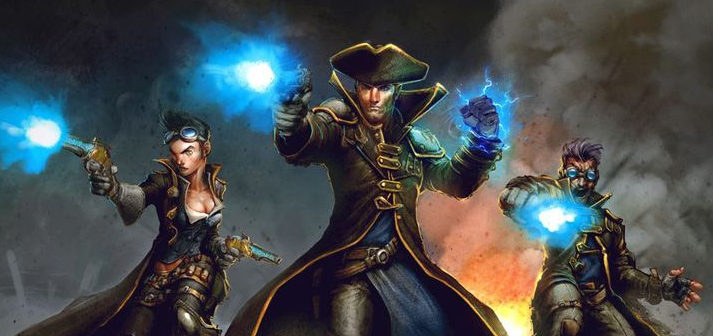After fighting the good fight for a while trying to determine what genres I write in, it’s now clear to me that there are no ‘rules’ beyond staggeringly incoherent broad strokes.
The genres I write in are Sci Fi and Fantasy. Easy enough to break those out. But then you go down the rabbit hole. Military Sci Fi, Alt History, Steampunk, Dieselpunk, Teslapunk, Solarpunk. Is it “Modern Fantasy” or “Urban Fantasy”, or should we call it Arcanopunk?
Is your head spinning yet? Yup, mine too.
I’ve got specific definitions for some things. I started seriously writing while I was part of the Steampunk community after all, so I have a definition of Steampunk that works –for me-.
I define Steampunk as fiction where steam power is still king and there are –usually– elements of Victoriana or its close relatives involved. Once you introduce the internal combustion engine, you cross the boundary into Dieselpunk, in my opinion. On the other hand, here’s an example of something I’d still call Steampunk that has nothing to do with Victoriana. Say you have Imperial Chinese airships going to other worlds using some kind of mind-bending technological gateway. So long as some version of -Steam- is central to the technology, I’ve got no problem calling it Steampunk.
These are –my– definitions, something that allows me to put structure on things. Nobody has to agree with them. If someone has a different definition, no problem. In -my- version of Steampunk there are no fixed wing aircraft or ray guns. Once you introduce airplanes it feels like we’ve once again jumped across to Dieselpunk. Lightning guns are one thing, but ray guns don’t “feel” right to me in Steampunk. There are a load of people who don’t agree with these opinions. And that’s fine. I used to say, “ask ten Steampunks what Steampunk is and you’ll get ten different answers.” I think that level of creative openness is really cool.
As I get into my next book, it’s what I think of as “Modern Fantasy.” Modern Fantasy to my eyes is fantasy taking place in our current world or a close approximation of it. In the case of my book, it’s the mundane world, then things happen that thrust fantastic elements into it. Just because the story takes place in a modern city doesn’t make it urban fantasy IMHO.
Genres fall in and out of fashion. Talking with my agent, they told me that Urban Fantasy is currently a non-starter with publishers, at least the publishers we’re talking to. In a few years it could swing back into vogue, but right now they aren’t accepting urban fantasy.
So… What the hell is Urban Fantasy, anyway? I’ve heard a bunch of different definitions that bleed into both what I’d call modern fantasy or arcanopunk. The one thing that seems to define “Urban” fantasy is that the setting, usually a city, is another character in the book. It’s like ships in my sci fi. They aren’t just a big box the characters walk around in, they have a personality that the characters interact with.
People say, “Don’t get so hung up on genre.” That’s really good advice if you’re writing. Write your story, whatever it is, and don’t sweat what category it might fit into. My experience has been that trying to write into a box seriously crippled my creativity.
But when I started pitching Tomahawk Incident, I very quickly realized that I needed to be able to define what it was, to put it into a descriptive box. IE, what genre is it?
After the first time I participated in a Twitter pitch party, PitMad, I realized I did myself a huge disservice. I’d pitched Tomahawk Incident as “Alt History” which seriously limited the people that would see it, as compared to pitching it as just Sci Fi. In pitch parties like this, people interested in finding new authors search for the tags they’re interested in. I only showed up to people specifically looking for Alt History, robbing myself of being seen by people searching the much larger category – Sci Fi. This was twitter, so every character was critical. All the tags took up characters that were then unavailable for the pitch itself.
Genre has different value in different contexts. When I’m writing I don’t even think about it. Once I get a better idea of where I’m going, then I start considering it. But at the end of the day, it’s the wild west. For the most part, there are no hard and fast rules about what a genre is in Sci Fi and Fantasy.

COMMENTs:
0